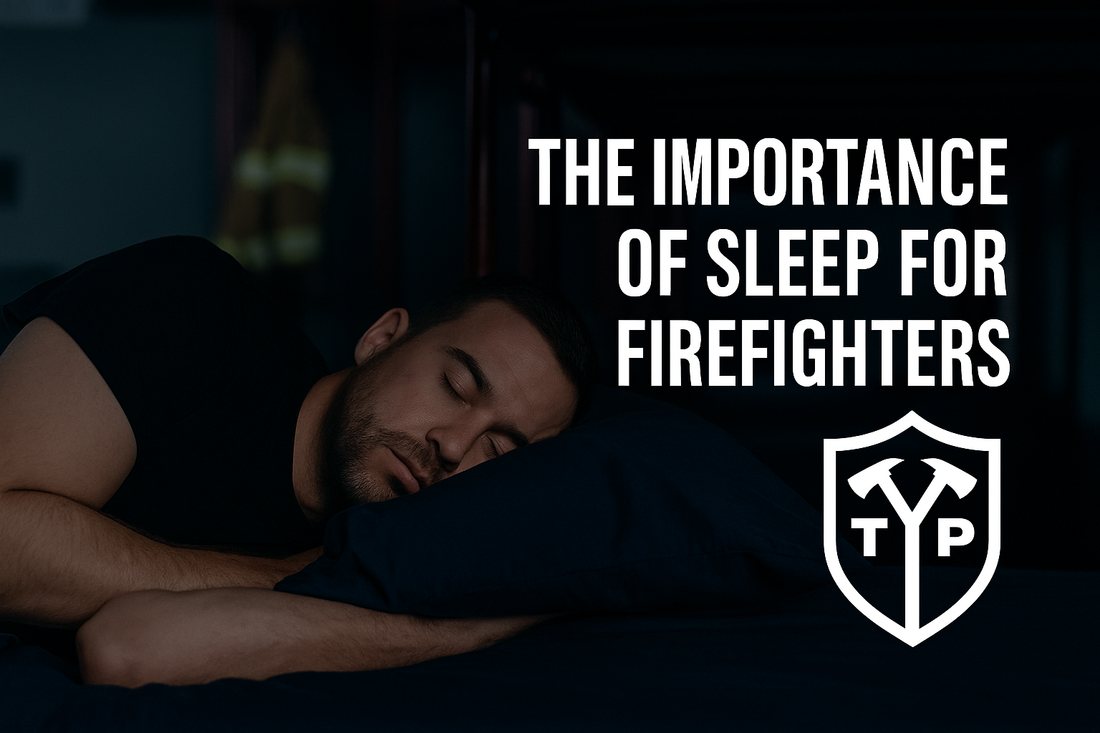
The Importance of Sleep for Firefighters: Protecting Your Health on and off the Fireground
Why Sleep Is More Than Just Rest
Firefighters live in a world of tones dropping at 2 a.m., back-to-back calls, and 24-hour shifts. Sleep often feels like a luxury we can’t afford. But here’s the truth: sleep is not just downtime, it’s a critical tool for survival, recovery, and long-term health.
In firefighting, we invest in turnout gear, fitness, and training to protect ourselves. Sleep should be seen the same way as a protective layer for your body and mind. Without it, even the strongest firefighter becomes vulnerable.
The Science of Sleep and Performance
When we sleep, our bodies and brains aren’t shutting down, they’re repairing. Deep sleep restores muscles, regulates hormones, and strengthens the immune system. REM sleep (the dream phase) sharpens memory, decision-making, and emotional control.
For firefighters, that means:
- Better reaction times on the fireground.
- Improved judgment in split-second life-or-death decisions.
- Stronger immunity against illness from constant exposure.
- Reduced injury risk thanks to sharper coordination and balance.
Lack of sleep, on the other hand, creates impairments equal to being legally intoxicated. One study showed that 24 hours awake slows reaction time just as much as having a blood alcohol level of 0.10%.
The Unique Sleep Challenges in Firefighting
Firefighters face sleep disruption unlike almost any other profession. The obstacles are baked into the job:
- Shift work & station life: 24s, 48s, or Kelly schedules make it nearly impossible to maintain a consistent rhythm.
- Interrupted nights: Multiple calls mean fractured, shallow sleep that leaves the body unrestored.
- Adrenaline spikes: After a fire or major call, cortisol levels stay elevated for hours, making it hard to wind down.
- Cultural mindset: Many firefighters push through fatigue, proud of running on coffee and grit.
These challenges add up. Research shows firefighters are at increased risk of sleep disorders like insomnia, sleep apnea, and circadian rhythm disruption. Conditions that also raise the risk of heart disease, cancer, obesity, and mental health issues.
The Hidden Costs of Poor Sleep
Skipping sleep doesn’t just make you tired, it chips away at every system in your body. For firefighters, the costs can be deadly:
- Heart health: Sleep deprivation raises blood pressure and heart disease risk—the #1 killer of firefighters.
- Cancer connection: Poor sleep weakens immune defenses that help your body fight cancer cells.
- Mental health: Lack of rest worsens anxiety, depression, PTSD, and burnout.
- Family & relationships: Chronic fatigue drains patience, energy, and emotional availability at home.
- Financial well-being: Medical issues tied to poor sleep mean higher healthcare costs and more sick time.
Practical Strategies for Firefighters to Protect Sleep
We can’t change the tones or eliminate the night runs, but we can take back some control. Here’s how:
- Prioritize naps: Even 20–30 minutes before or after a shift can restore alertness.
- Create a sleep-ready environment: At home, use blackout curtains, white noise, and keep your room cool (65–68°F).
- Protect your sleep window: Set boundaries with screens, caffeine, and alcohol before bed.
- Train your body: Stick to a consistent pre-sleep routine to cue your brain it’s time to rest, even if it’s daytime.
- Exercise smart: Regular workouts improve sleep quality, but avoid high-intensity training right before bed.
- Use sleep banking: Rest well before a long shift to “store” energy reserves your body will use later.
- Address sleep disorders: Don’t ignore snoring, insomnia, or daytime exhaustion. Get tested for sleep apnea or other conditions common among firefighters.
A Culture Shift We Need
Firehouses are built on toughness, but toughness is not ignoring your health, it’s protecting it. Prioritizing sleep doesn’t make you soft; it makes you sharper, stronger, and safer.
Imagine a fire service where every firefighter sees sleep as part of their gear - as critical as SCBA, fitness, or training. That cultural shift could save more lives than any tool we carry.
Final Alarm: Sleep Is Survival
At the end of the day, the fireground demands the best version of you. And the best version of you depends on sleep. It’s not optional, it’s not a luxury. It’s the foundation of your health, safety, and longevity.
Protect your rest the way you protect your crew. Because without it, every fire gets harder, every call gets riskier, and every day off becomes recovery instead of living.
